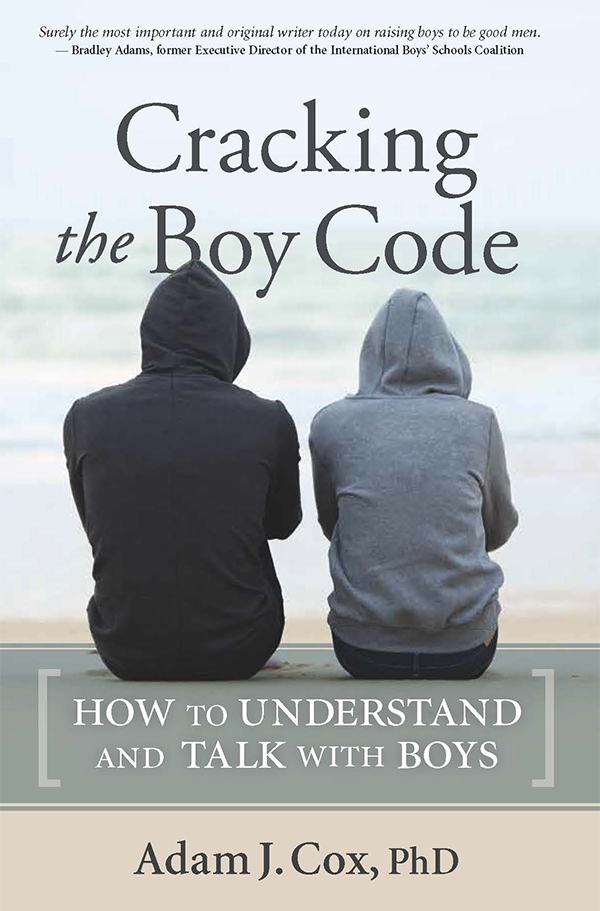 “I’m sorry, father, I cannot tell a lie.” This familiar quotation, perhaps tells us more about our own desires than the reality of daily life. Why? Because ALL kids lie. Lying, in its various forms (described below) is as common to childhood as skinned knees, sibling rivalry, and poison ivy. To be sure, some children lie in more dramatic ways, or more frequently, than others,. Yet we all lied – at least occasionally – as children.
“I’m sorry, father, I cannot tell a lie.” This familiar quotation, perhaps tells us more about our own desires than the reality of daily life. Why? Because ALL kids lie. Lying, in its various forms (described below) is as common to childhood as skinned knees, sibling rivalry, and poison ivy. To be sure, some children lie in more dramatic ways, or more frequently, than others,. Yet we all lied – at least occasionally – as children.
When we catch a child or adolescent lying, strong feelings may be triggered in us. Perhaps we feel indignation – insulted that someone we love would try to deceive us. We might also feel concern for a child’s moral development: “Is my child a dishonest person?” “What will the world think of my child if s/he is perceived to be a liar?” And some deceptions lead to heightened anxiety about safety, such as “Where were you really last night?” or “Why didn’t you tell me you were threatened at school?”
Behind all of the emotions we might express about being deceived is the dread that trust is being eroded. Trust is the invisible twine that ties our lives together, providing a sense of safety and reassurance. Trust does not create love or respect, but it certainly helps to enable them. When the person lying to us is someone we love, the pain can be intense.
Four Common Kinds of Lies
For the sake of clarity, let’s talk about five categories of lying, as well as a few suggestions for both preventing and responding to lying:
Impulse Lying
Perhaps the most common type of lie is one propelled by a momentary impulse. In the midst of conversation with a friend, a child may make a claim that’s not true, often contradicting the obvious: “I already did my homework” (despite book bag sitting on kitchen floor since coming home from school). “Why don’t you believe I’m the fastest kid in my class?” (said by a child who is routinely outrun by a younger sibling). “I have an even longer snake at home. Once I saved my mom from being strangled!”
Impulse lies emerge without warning, usually in response to an emotionally charged situation, such as a child being asked to do something he really doesn’t want to do. But impulse lies also grow from a need to compensate for some perceived weakness or personal failing. An impulse lie is often a quick attempt to maintain control, assert dominance, or establish credibility. Sometimes, smaller lies can lead to bigger lies as the “cover up” becomes more complex. Teenagers intent on being impressive often fall victim to this type of grandiose deception. “I could’ve bought any guitar I wanted, but I chose to shop at Discount-Mart so I can use the rest of my money for a world tour, which I’ll be doing as soon as I learn to play.”
Naturally, status and credibility are undermined by a pattern of impulse lying, but at the moment an impulse lie occurs, there is a peak in anxiety that blocks this insight from conscious awareness.
From a parent’s or teacher’s perspective, impulse lying is primarily a nuisance. One wonders if a child should be called on every obvious fabrication, or if such lies are innocent enough to let go. For peers of the liar, however, the situation is more complex. Remember that other children don’t appreciate the emotional reasons that lead to a lie the way an adult might. Consequently, they can be less forgiving. For this very reason, we sometimes intervene on impulse lies because we fear the effect of impulse lying on social and emotional development.
The “Honorable” Lie
Most people feel that two forms of dishonesty are occasionally acceptable: the “white lie” to protect someone’s feelings, “I’m sure nobody even noticed that hole in your pants,” and the lie to preserve someone’s safety– “we don’t know where your ex-wife is hiding.” Many children and teens expand on the “code of honorable lying;” generally it is done on behalf of a friend or loved one. In clinical practice, we often see this in cases of divorce, where a child will lie for fear of alienating a parent and losing contact. One parent may get very upset, saying “why does he lie to protect his father (mother), when I know what’s happening over there?” In these cases, the desire for the love of the parent being “protected” through the lie is more powerful than fear of punishment.
Similarly, as children move into middle and high school, there is powerful peer pressure not to “sell out” to adults. Otherwise good kids may lie in the face of direct questioning about the behavior of peers, because the social consequences of being labeled the “snitch” can be enormous.
Lying to Avoid Shame
One of the most powerful incentives to lie is the preservation of status and character – how we are perceived by others. When a young person feels shame about a poor choice or action, the natural instinct is to psychologically go into “damage control” mode. “How can I preserve my status in the eyes of others?” How can I down play what I’ve done to make it seem trivial?” “How can I avoid the awful feelings of vulnerability associated with being found out?” A huge amount of effort is silently applied to figuring out these problems because shame is such an unpleasant emotion
(Did you know that the presence of shame or humiliation in an adult male’s personality profile suggests they are more likely to demonstrate suicidal behavior?)
From one perspective, shame is a valuable component of a child’s emotional repertoire. Don’t most of us recognize that the prospect of shame prevents many bad decisions? In the best scenario, shame is like an emotional barometer, helping us to sense a build-up of internal pressure, and like a moral compass guiding us to go in the right direction.
As adults, sometimes we identify with a child’s shame, and respond accordingly. Parents can find it painful to confront a child about a lie, if they’ve sought to deceive others in similar situations. For example, if my son vaguely assures me he did his homework, my response to the doubt I feel might be complicated by my own guilt about failing to get to a stack of overdue paperwork on my desk. I believe it’s actually a healthy sign of empathy when we bring this type of compassion into our relationships with kids. It’s not so much that this awareness stops us from dealing with an issue, so much as it shapes how we approach the matter. “If some of your homework is done -great! But I’d like to check it out when it is completely done,” is better than, “If you’re saying it’s done, I want to see it right now.”
Please remember that when we ask children to remove masks or the tools of concealment, we inevitably leave them vulnerable. In Boys of Few Words, I advise parents to take their time in disarming boys this way. This is because feelings of vulnerability can be so strong that they spur behavior worse than the concealment. Where sexual behavior is concerned, caution is especially warranted. Think of an adolescent boy found looking at pornography, or whose mother’s underwear is found in his room. Kids do not have good answers for the “whys” of these behaviors. It’s usually best to first establish a sense of reassurance, then talk.
Lying to Meet an Immediate Need for Gratification
Have you ever wanted something so badly – a thing or an experience – that you would do almost anything to have it? If so, you know a little bit about deception for the sake of immediate gratification. This type of lie pits the surging need for reward and pleasure against the virtue of personal integrity. It could be as minor as “exactly how many cookies have you already had?”, or as serious as “I know you’re anxious to drive, but taking the car around the block before you turn sixteen could cause you 100 hours of community service and a criminal record.”
Sometimes, the intense desire for gratification is less about the thing to be acquired than the momentary high of getting the item. In such cases, the underlying emotional needs of the compulsion need to be addressed. Highly kinesthetic kids often have a hard time passing up an opportunity for adrenaline- pounding challenges-diving into a quarry, crossing an open train trestle, or even experimenting with the sensations of drugs. Many of us can be impatient with this type of lie because we see it as entirely unnecessary. These types of lies also seem pre- meditated and they can make our blood boil!
Helping kids prone to lying for the sake of immediate gratification should focus on teaching them to put the brakes on strong needs. In some cases, rather than trying to convince them they don’t really need something, we can help them form a realistic time- frame. (“You can use part of your allowance for a pack of baseball cards each week, but your birthday money goes into the bank.”) In this way, we can ally ourselves with strong needs (when appropriate), emphasizing that such feelings are a natural part of life and call for some strategic problem-solving. “Yes, you can get some new clothes, but not by taking money from your sister’s piggy bank. Let’s think of some other ways you can make some extra money.”
Half-truths, Lies of Omission, and Subterfuge
This last category of lies can be the hardest to detect and respond to. That’s because these lies may include a partial truth (“I didn’t say that word!” meaning “I didn’t say that exact word at the exact moment you think I said it.”) Other times, kids leave out important details– a lie of omission. Consider Tim’s statement, “I was trying as hard as I could to keep Zoe quiet.” One might never guess that Tim sought to accomplish this goal by letting baby Zoe eat a whole box of chocolates.
Finally, some teenagers deserve to be called maestro for their ability to orchestrate mass confusion; confusion so thick that an adult can’t reliably assign responsibility for a particular wrongdoing. I’m referring here to the kind of subterfuge one often hears in congressional hearings: “Senator, I can’t recall who said what or when.” “It was mostly my idea not to avoid doing something that was partly right – at least that’s my intention in some situations.” Hmmm.
Parents and teachers are rightly concerned when there’s a high degree of obfuscation. This kind of “verbal smokescreen” may indicate nothing more than a wish for autonomy and privacy-“you don’t need to know everything about my life.” But sometimes dishonesty indicates that there’s a behavior in hiding that warrants greater concern. Lies and deception are the partners of drug and alcohol abuse. When teenagers start down this slippery slope, they quickly become experts in reading whether we “buy” the deception or not. When they discover an approach that leads us off the trail, they will likely use it often.
And there are also times when a child lies to get credit for something she knows was right, but didn’t actually do. For example, “Did you stand up for your brother with your friends?” gets a “yes” response, when in reality the child thought about standing up for her brother, knew it was the right thing to do, but didn’t act on that principle. In such cases, kids still want to get “credit” for knowing what is right, and may embellish their role in a particular situation. (This is common in young children who seek to impress their parents. Very young children have powerful imaginations and don’t make such clear distinctions between thoughts and actions. In such cases, it’s better to provide clarification-“maybe you wished you had walked the dog” – than punishment.)
Okay, Let’s Go Over This Again
So what’s our best defense? Detail, detail, detail. Ever notice how television detectives make suspects repeat a story multiple times? The reason they do so is because fabricated stories tend to be inconsistent, often falling apart as they are recounted. Where kids are concerned, we certainly don’t want to become interrogators, but it is okay to insist on sufficient detail. Experience with an individual child should dictate your approach, but I see nothing wrong with the “trust, but verify” school of parenting. If we begin this approach early in a child’s life, it prepares them for a relationship of accountability – perhaps the most valuable factor in building a relationship of trust.
In a previous issue of Family Matters I offered these suggestions in response to an emailed question about lying at home. I thought they were worth repeating here:
- At a time when no lying has recently taken place, sit down with your child and explain your views on lying. Ideally, all primary caretakers should do this together, making sure your child sees that you are in solidarity about this concern.
- Say that when you suspect s/he is not telling the truth, you will ask for proof- and that there will be some kind of consequence for lying.
- Develop some kind of nonverbal signal you can send your child when you want to let him or her know your doubts in a public place. Particularly when we embarrass kids, things usually get worse as they feel a stronger need to compensate for increased feelings of vulnerability. Nonverbal signaling allows you to be “on the job” wherever you might be, and control lying that may spiral if not checked.
- Help your child develop a special type of expertise. By building children’s knowledge we give them authentic opportunities for mastery and confidence. As children develop their expertise, invite contributions in discussion where their knowledge will help them shine.
- Spend time helping your child consider the merits of honesty and genuine expertise vs. the anxiety inherent in lying.
There is a difference between lying and becoming a liar. While the former is inevitable, the latter is not. All types of deception should be taken seriously, although not necessarily responded to in the same way. Before you respond to a child’s or adolescent’s suspected lie, ask yourself what motivated the lie. On some level, any unwanted behavior is anxious for understanding, which is not the same as acceptance.
And if we can remember our own lies, and the feelings or wants that propelled them, perhaps we can find our way around indignation to more collaborative problem-solving. Trust me.
What’s News
 Q: What is the critical starting point in developing social skills?
Q: What is the critical starting point in developing social skills?
A: Perception
In my books, newsletters, and talks, I have often discussed the importance of auditory processing in developing social awareness. The auditory processing differences between males and females account for a high proportion of the social skills deficits we often encounter in boys. I recommend Leonard Sax’sWhy Gender Matters for those readers seeking further detail about this important dimension of gender difference.
A recent article by Christoph Kayser in Scientific American Mind makes the point that the brain also listens with its eyes. More specifically, Kayser describes how our senses work together in many respects. For example, when we see another person’s lips moving, our auditory cortex is activated even if we can’t hear their voice. Our eyes help to process another person’s speech, adding understanding to what we are perceiving. Well, consider the neuropsychological syndrome prosopagnosia. This disorder disables a person’s ability to remember faces. I wonder if many of the kids I work with may have at least a trace of this perceptual deficit, making it considerably more difficult for them to remember and comprehend facial cues.
Those who have attended my talks know that I’m adamant about the need for a greater focus on the type of school-based learning skills I discussed in the last newsletter – executive control skills. I am equally enthusiastic for school-based social skills training that goes way beyond character development to give students a chance to learn and practice social perception. This is the basis of my Mighty Good Kids programs. The key strategy of my approach is codifying social perception. When we break social perception down into detectable “chunks” of information, we reduce kids’ anxiety, and give them something tangible to wrap their minds around. This is a far more positive, helpful approach than saying “you have to be more intuitive.” Can you be more intuitive? I know I can’t. In fact, I have absolutely no instincts for how to repair a computer, but I bet I could do okay if someone talked me through the steps, helping me to understand what to look for and what to do.
Ask Dr. Cox
 Q. I have a seven year-old that just started using very bad words for no reason. Can you give me some advice about how I can get him to stop. We have tried everything and nothing seems to work. It’s like he enjoys doing it.
Q. I have a seven year-old that just started using very bad words for no reason. Can you give me some advice about how I can get him to stop. We have tried everything and nothing seems to work. It’s like he enjoys doing it.
Ruthann H., Burlington, NJ
Dear Ruthann:
The last sentence of your question is right on target. My guess is that your son does enjoys using “bad” words, primarily because they are taboo. Throughout life, children and teens typically test the limits of what is acceptable. You may discover that not only does your son enjoy saying bad words, he may even want you to overhear him using them. This is because he wants you to know that he is learning a code associated with the world of adults. These words are often used by adults in emotional situations. By the time a child is six or seven, they sense that these words have a special significance for adults, and can be used to convey strong feelings. Much of childhood is spent trying to “get in the loop” on such things as cursing.
So what can you do to help? I’m guessing you have already explained that some words should only be used by adults, that those words could hurt other people’s feelings, and that using such language could result in losing friends and the respect of adults. The next step is to explicitly identify those words you deem unacceptable and to immediately respond with a consequence whenever they are used. The consequence should be identified ahead of time so that your son knows what’s on the line if he curses. In cases where your son curses at another person, I strongly recommend that you or his father supervise an apology, and an explanation as to why cursing is a bad thing to do.
Q. Should I be concerned that my high school junior shows no interest in girls. He has never been on a date ( as far as I know), and never talks about any of the girls in his classes. Could he be gay? Is it normal to have so little interest in socializing? I don’t want to nag him but I’m concerned for the future.
Charlene W., Greensboro SC
Dear Charlene:
I think most parents take an interest in their kids’ social development, and dating is part of that package. However, your son is not alone in choosing to delay an immersion into the world of dating and romantic relationships. Bottom line: Some kids (especially boys) just don’t feel ready until they are beyond high school. Although it is possible your son is gay, his lack of verbalized interest in girls is not sufficient to draw this conclusion. It’s more likely that he feels socially anxious or awkward. He may have no idea how to behave on a date. He might also feel self- conscious talking to you about girls he feels attracted to. What if you don’t approve of his choice? What if he confesses his love and then gets rebuffed? Ouch!
Your best strategy is to be interested, yet patient. If you bring up the topic of dating, do so with a “matter-of- fact” tone, preferably while you’re doing something else. This will help to diffuse the anxiety that inhibits so many teenage boys from talking about personal or emotional issues.
Find more helpful articles and insights at:
dradamcox.com
Do you have a question for Dr. Cox? Email your query with “question for Dr. Cox” in the subject line -your question may be answered in an upcoming issue of Family Matters!
Coming in the next newsletter – Cultural Issues and Social Adjustment




